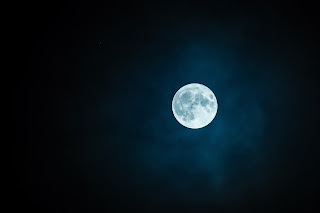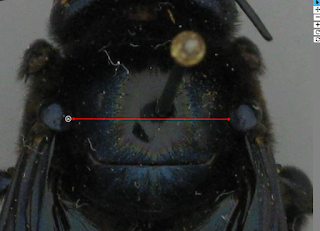Moon poems
I have been taking a deep look at the theme of ‘the moon’
and ‘moon poetry’. Considered by some as cliché the moon has fascinated us from
the beginning of time. For the poet themes such as stillness, loneliness,
beauty – for modern man we now have to consider if we want to return to the
moon – could we start a colony on the moon, mine the moon? Who owns the moon?
These are the issues (and more) that we are dealing with now.
I thought for a start I would compare one of the classic
‘Old poems’ number 7, From Arthur Waley’s ‘Chinese Poems’ with ‘Sad Steps’ by
Philip Larkin.
Number 7 (anon.)
Sad Steps by Philip Larkin
Both written at night, one outside, one inside looking
through the curtains of a window. Number 7 is anonymous written in 2nd
century CE. For this reason I have found it difficult to find another
translation. I am going to assume that this poem was written by a woman who
loves the moon, the stars, nature, yes, it is a sad poem regretting the loss of
a ‘same-house’ friend who ‘left me like footsteps behind one in the dust.’ It ends
as a meditation on the value of friendship, she is in pain, lonely but seems to
enjoy the stillness, the sounds of the crickets at night. She is aware that
regardless of how still and beautiful the sky is that events can change with a
sudden swiftness – that is shocking.
The friend that left is ‘he’ so I am taking it that the
writer is a woman, she writes:
“once I had a same-house friend,
he took flight and rose high away
he did not remember how once we went hand in hand"
The moon leads her to think she is alone and how good it
would be to have someone. Perhaps I am wrong and it means literally ‘fly away’.
This could mean the friend was a bird. Waley suggests by using the phrase
‘same-house’ a special type of friendship.
As the poem is anonymous from the 2nd century CE,
I have not been able to find another translation to confirm this. Overall.
sadness, stillness and the value of friendship shine out from this poem.
The second poem is ‘Sad Steps’ by Philip Larkin, written in 1968. The title is taken from a poem by Sir Philip Sidney, ‘Astrophil and Stella’
with the lines, ‘how
sad steps, o moon / thou climb’st the skies’. Also influenced by Thomas Hardy’s
‘Shut out that moon’.
This time Larkin is inside, tired, coming back to bed after
a trip to the toilet, he opens the curtains at 4am and watches how fast the
clouds travel across the sky.
For Larkin the overwhelming feeling is cold, then isolation,
then a reminder that you should enjoy being young because it only happens once.
The moon is still, compared to the earth. We also saw stillness
in poem number 7. The moon for Larkin is ‘clean’ compared to the earth. He does
refer to the ‘singleness’ of the moon and perhaps it does reinforce loneliness
but I don’t get the same sense of grief or loss, instead Larkin seems quite
prepared to suffer and carry on.
We can also look at the ways Larkin plays with rhyme –
rhyming piss and cleanliness, lie and sky, there and stare, pain and again.
Another theme in the poem from line 6 – it is ‘laughable’
that the moon should be so distant, so pristine, so still compared to the rapid
pace of life on earth and the dirt of earth, such as life is experienced by
Larkin.
I did wonder if Larkin would have watched the moon landing
in 1969, and what he would have thought of it.
Also, I wanted to mention ‘Conquistadors’ by Simon Armitage,
his poem in tribute to the moon landing.
Is the moon landing another colonisation? I am not sure if
Armitage is totally convinced about the space race, this poem seems to be
another attempt to appeal to modern readers.
Lastly, Mairtín Crawford has written ‘<MoonMan>’.
Mairtín was a Belfast poet, I knew him, unfortunately he died in
2004. He had acquired funding to travel to Baikonur, he was fascinated by
space. I’m not sure how to interpret this poem though. Experimental, perhaps
unfinished, he is calling for respect to the earth, to the moon. It pushes the
tradition of moon poetry forward and yes, I prefer it to ‘Conquistadors’.
I am not sure how this project will continue, there are many
more poems in the Chinese tradition about the moon, I will keep looking but
this template of comparing one modern, one ancient seems to work well.


Of course, I will be listening to Bob Dylan 'Blue moon'.
ReplyDelete